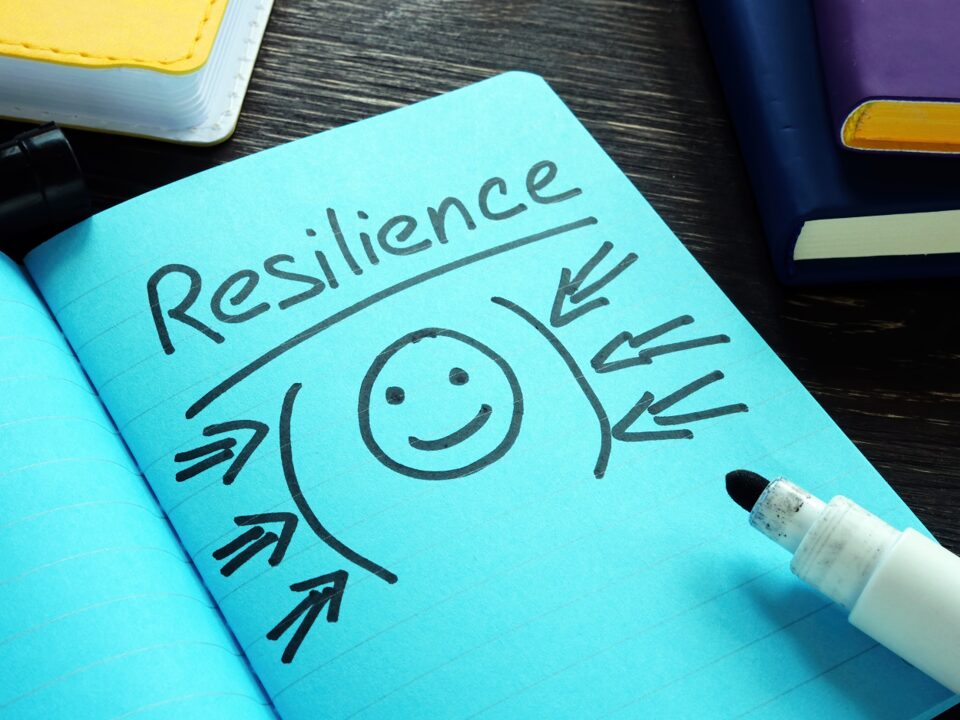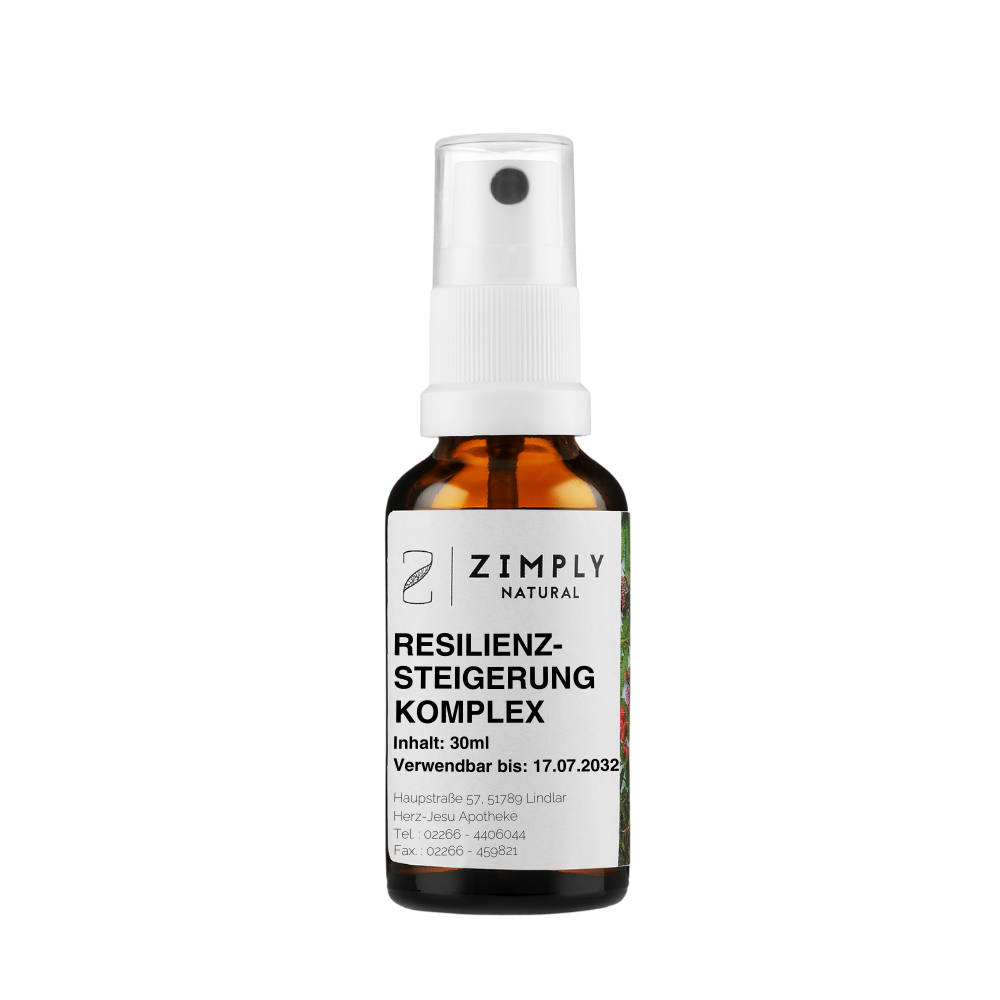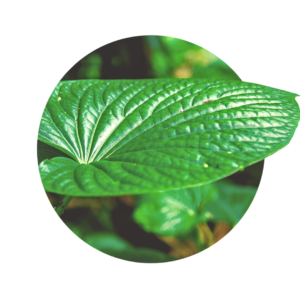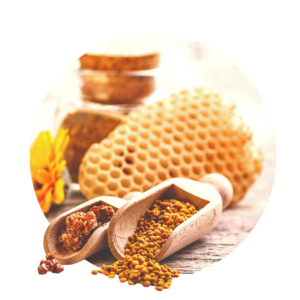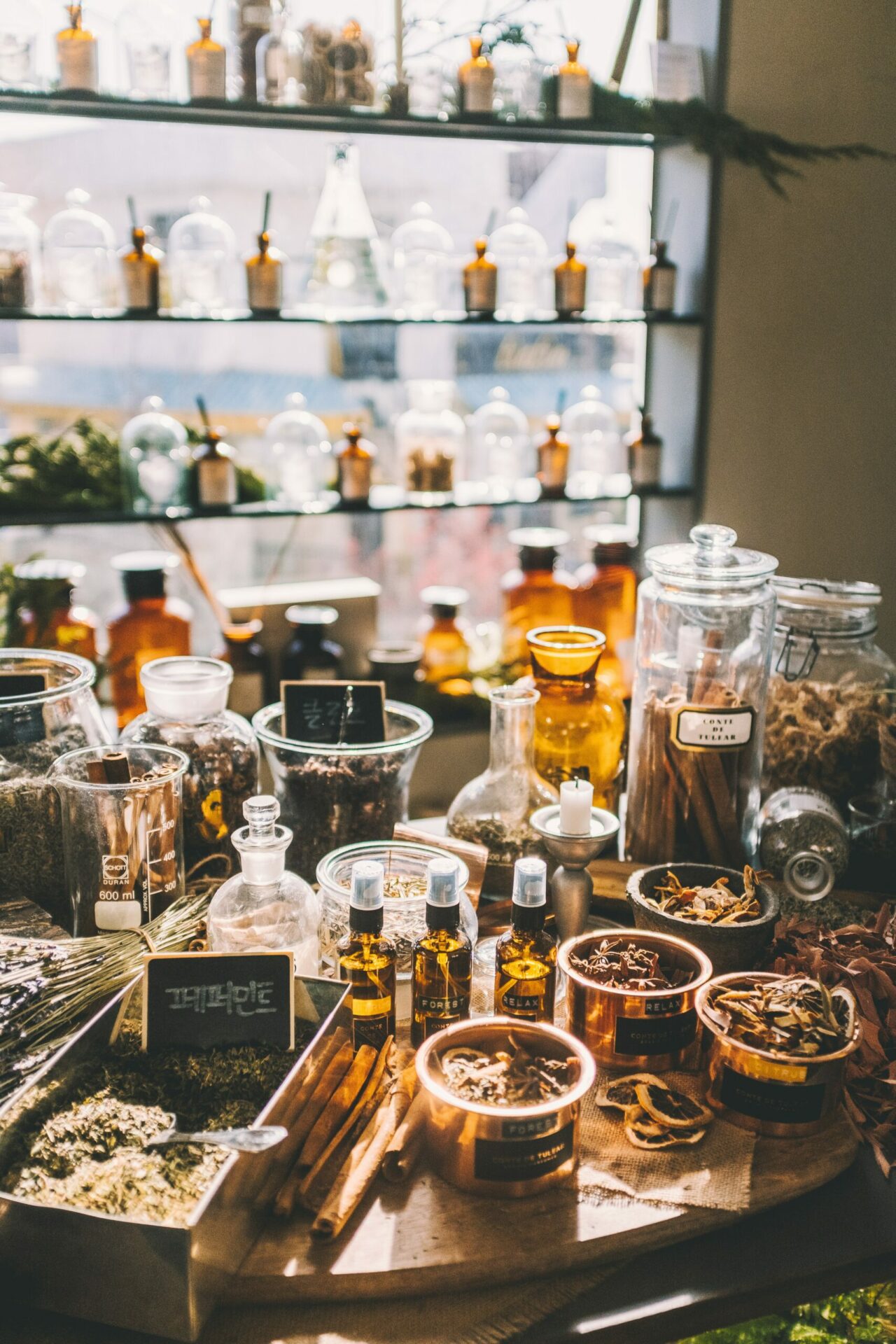You may have heard of resilience before - or was it resistance? This article is about the former, but we will also explain the difference between the two terms. We'll explain what resilience is and why it's so important. We will also explain the role of stress and give you tips on how to increase your resilience in stressful situations. If that sounds interesting, then we hope you enjoy reading it!
With natural methods, such as the individual spagyric mixtures from Zimply Natural, your complaints can be relieved naturally and sustainably.
Table of contents
- What is resilience and why is it so important?
- Causes and effects of stress
- These characteristics make a resilient person
- A lack of resilience can have these effects in everyday stressful situations
- Ways to increase your resilience in stressful situations
- Tips for dealing with stress in everyday life
- What is the difference between resilience and resistance?
- These medicinal plants can support your resilience
- Zimply Natural - your natural booster for resilience in stressful situations
- FAQ: Questions and answers on the topic of resilience
What is resilience and why is it so important?
Resilience is the ability to cope with difficult situations and recover from setbacks. Ideally, you will even emerge stronger from these circumstances. In stressful times, your resilience enables you to remain resilient and cope well with life's challenges. But these are not the only reasons why resilience is so important. By strengthening your resilience, you can not only cope better with stress, but also improve your emotional stability. You can also strengthen your relationships and lead a more fulfilling life overall. You could also describe resilience as a mental immune system. It helps you to withstand the pressures of everyday life and protect you from the negative effects of stress.
That the term "resilience" originates from materials science and refers to the ability of a material to return to its original form after deformation? It was only in the 1950s that psychologists began to relate this term to the human psyche.
Causes and effects of stress
Stress can have many causes and can have very different effects on your body. Some causes include a heavy workload, financial worries, interpersonal conflicts or even health problems. When you experience stress, your body reacts to it with various emotional and physical effects. For example, your heart may beat faster, your muscles may tense up and you may feel more nervous than usual. Long-term stress can lead to many health problems, including cardiovascular disease, sleep disorders, gastrointestinal problems and mental illnesses such as depression and anxiety. Anxiety. Chronic stress can also weaken your immune system and make you more susceptible to infections and illnesses. To strengthen your resilience, you should try to identify your sources of stress so that you can tackle them effectively.
These characteristics make a resilient person
Acceptance
Acceptance refers to the fact that you are able to accept reality. Especially when it is unpleasant and you don't actually want to accept it. With a high level of resilience, you are able to cope with change and loss and face up to challenges. You can do this without resistance or rejection. Instead of resisting it, you accept the situation and find a way to deal with it.
Optimism
Optimism refers to the fact that even in the darkest moments, you see the light at the end of the tunnel. You have a positive attitude even in bad times and maintain the belief that things can get better. As a person with a high level of resilience, you keep hoping and are convinced that you can overcome the challenges ahead.
Self-efficacy
Self-efficacy refers to the attitude that you yourself are effective and believe in your own abilities. You know that you can solve problems and overcome new challenges. With a high level of resilience, you have confidence in your ability. You also know that you are in control of your life and can influence it. As a result, you don't feel powerless in the face of change, but see yourself as an active shaper of your own destiny.
Responsibility
Responsibility means that you are able to take responsibility. This means that you stand up for your decisions and behavior and don't blame others. You don't try to talk your way out of situations, but concentrate on making the best of them and finding solutions.
Network orientation
As a resilient person, you are aware of the importance of social relationships and support systems. You cultivate your social contacts and seek support from family, friends and colleagues. If you need help from other people, you are not too proud to ask for it and accept it. You know you are not alone and you can count on your network, even and especially in difficult times.
Future orientation
Future instead of past - if this statement applies to you, you are probably a resilient person. You look forward to the future and not backwards to the past. You probably have clear goals and an idea of where you want to go and you have learned from the past. However, you don't let it hold you back, but instead focus on actively shaping your future.
Solution orientation
Solution orientation means that you have the ability to look for solutions and focus on overcoming problems. As a resilient person, you are able to recognize problems, even though they may have arisen from your own mistakes. You also actively use your energy and resources to find and implement constructive solutions.

That constant stress can increase the risk of gastrointestinal problems, cardiovascular disease, anxiety, sleep disorders and depression?
A lack of resilience can have these effects in everyday stressful situations
While a high level of resilience makes your life much easier and you can deal with challenges much better, a low level of resilience has the opposite effect. Resilience is particularly important in everyday stressful situations and if you don't have sufficient resilience, you will have problems with precisely these. You are likely to be overwhelmed by stress very quickly and find it difficult to cope well with challenges. You may also find it very difficult to find effective solutions due to feelings of overwhelm, fear and helplessness. Chronic stress and consequently low resilience can have long-term health effects as they are associated with a variety of problems. These include cardiovascular diseases, sleep disorders, gastrointestinal complaints and mental illnesses such as depression and anxiety. In addition, prolonged stress can weaken the immune system and increase susceptibility to infections and illnesses. But how can you strengthen your resilience in the long term?
Ways to increase your resilience in stressful situations
There are various strategies and techniques you can try to increase your resilience in stressful situations. One option, for example, would be mindfulness and relaxation exercises. These include practices such as yoga, meditation or breathing exercises. If you practise these regularly and integrate them into your everyday life, you can learn to calm your mind and let go of thoughts. You should also make sure you find a healthy work-life balance and regularly take time for relaxation and self-care. Sufficient sleep, exercise and a healthy diet are also essential to strengthen your body and mind. In addition, you should also have a good social network and support, as this can help you a lot when you have setbacks. Look for people you can talk to about everything and who will give you support. Also learn to set realistic goals and focus on solutions rather than problems.


The application of your Resilience enhancement sprays iBy the way, the treatment is very simple: the spray is simply sprayed into the mouth according to the dosing instructions on the bottle. In order to achieve the best possible effect and to be able to optimally counteract the causes, we recommend using it over a longer period of six to eight weeks. As a kind of cure, spray 3×3 sprays daily.
Tips for dealing with stress in everyday life
Try to take regular breaks in your everyday life, for example by reading a book or making yourself a cup of tea. You could also meditate during this time to ground yourself again and clear your head. If you find yourself in an acute stress situation, for example before a presentation or exam, there are also exercises for this. One breathing exercise is to breathe in with your mouth closed and count to six. Then exhale slowly and repeat the exercise until you feel calmer. If you feel the need to involve your body, you can also try alternately tensing your hands. Also try to keep an overview of your tasks and avoid feeling overwhelmed. You can achieve this by prioritizing, making to-do lists and taking smaller rather than larger steps. Another important point is that you learn to be grateful for the little things and to be satisfied with the current situation.
What is the difference between resilience and resistance?
Resistance and resilience are words that you have probably already confused. Now that you've improved, you might be wondering what the difference is between these similar-sounding terms. Resilience is the ability to deal with difficult situations and not let them get you down, but to carry on stronger. As a resilient person, you can adapt flexibly to situations and have emotional stability. This also means that you can overcome setbacks and learn and grow from difficult situations. Resilience also means that you can withstand external influences and stresses, but do not learn from them. You stay the same and maintain a system without making adjustments. In a medical context, resistance describes the ability of an organism to ward off diseases or infections. In psychology, resistance refers to a person's ability to protect themselves against psychological stress. This happens without the person adapting or growing.
The fact that 84 % of adults in the USA are in the COVID-19 pandemic were highly stressed? This was the result of a survey conducted by the American Psychological Association in 2020.
These medicinal plants can support your resilience
Echinacea has immunomodulatory properties that stimulate the immune system through active compounds such as alkamides, polysaccharides and flavonoids. Echinacea is also rich in antioxidants that protect against oxidative stress and increase physical and mental resilience. The anti-inflammatory properties of echinacea can reduce chronic inflammation, which consequently increases mental resilience and resilience.
This medicinal plant can help with exhaustion, whether it is the result of stress or something else. Taiga root restores the body's strength and helps it to recover optimally. Taiga root can also help people to get back on their feet and participate in everyday life after long periods of illness. The plant can also help to reduce existing stress and at the same time increase resistance to stress.
As the effects of stress can manifest themselves throughout the body via the central nervous system (CNS), stress has many faces. Kava-Kava is directly effective in the CNS, reduces stress and leads to a generalized relaxation of the body. Kava kava is a very effective and important medicinal plant as stress is responsible for many illnesses in today's society. Kava kava can also have a negative influence on the course of disease.
Propolis has compounds that strengthen the immune system and can help your body fight off infections and diseases. Propolis is also rich in antioxidants, which can protect your body from oxidative stress and increase physical and mental resilience. Some studies have also shown that propolis has anti-inflammatory effects. These can help to reduce chronic inflammation and improve mental resilience.
Nasturtium can protect the body from oxidative stress thanks to its antioxidant properties through compounds such as vitamin C and flavonoids. The plant also contains mustard oils that stimulate the immune system and have antimicrobial properties, which can strengthen your resilience in the long term. In addition, nasturtium is also said to have mood-enhancing effects, which can help you deal with stress and strain.
Zimply Natural - your natural booster for resilience in stressful situations
With Zimply Natural, we are the antidote to painkillers, sleeping pills, and standard medications. We are your medicine! For our mixtures we use the centuries-old natural healing method of spagyric back. The Spagyric combines the herbal active ingredients and phytotherapeutic elements of the HealingplantsThe mineral salt qualities, as well as the subtle information of the medicinal plants and the energetic potential of the Bach flowers.
With natural methods, such as the individual spagyric mixtures from Zimply Natural, your complaints can be relieved naturally and sustainably.
FAQ: Questions and answers on the topic of resilience
Can childhood have an influence on resilience?
Yes, childhood can indeed have a huge impact on resilience later in life. The early experiences that children have can influence their ability to deal with challenges and, above all, stress. Psychological and emotional resilience can also be very much shaped by childhood. A loving and secure bond with parents or other caregivers can be the basis for a supportive social network. Children who have learned to deal with small challenges at a young age often develop a higher level of resilience. This is because a sense of achievement usually leads to greater self-confidence. However traumatic or drastic life events in childhood can have the exact opposite effect and impair the development of resilience. Children who are exposed to abuse, neglect or domestic violence, for example, generally have a higher risk of mental health problems.
How can children's resilience be increased?
Unfortunately, there is no universal guide on how to increase resilience, as everyone is different. However, there are some tips, especially for children, that you can incorporate into your upbringing and everyday life. The most important piece of advice is to support your child and give them the feeling that they can always come to you. Create a safe environment for your child, help them build their self-confidence. Encourage them to see challenges as opportunities and support them in finding solutions. Teach your child how to recognize their own feelings and how to deal with them properly. Giving and receiving constructive criticism and understanding that it is not an insult is also very important.
Which occupational groups have the greatest resilience?
In fact, studies have already shown that people in the healthcare sector, emergency services and other helping professions have a higher level of resilience. This is because they are confronted with high levels of stress and traumatic events on a daily basis. These professions often have specific training and support systems in place to strengthen their mental resilience and prevent serious problems.


